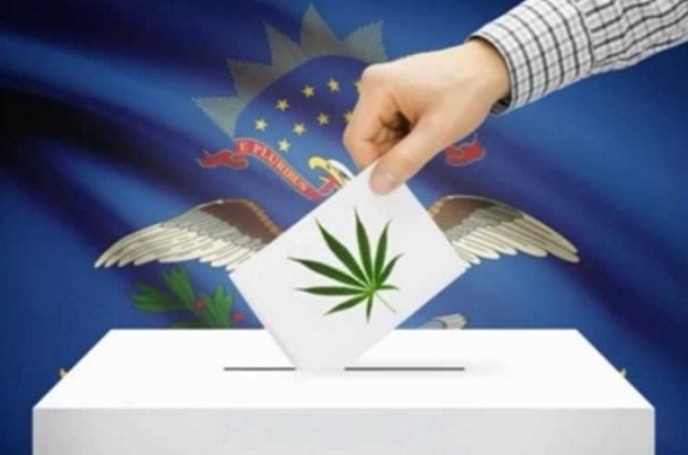
Advertisement
Now that Marco Rubio is out of the race, for the first time in U.S. political history, every presidential candidate — of both parties — supports at least states’ rights to do as they please with regard to marijuana legalization.
(Article by Spencer Platt, republished from https://www.rollingstone.com/politics/news/all-2016-candidates-support-legal-weed-sort-of-20160321?page=2)
With more Americans than ever (58 percent) believing marijuana should be legalized, many are considering the issue when heading to the ballot box. But it remains unclear whether the candidates’ support of this issue — which ranges from full-throated to tepid — will be enough to effectively influence federal policy. Ultimately Congressional leadership will determine whether marijuana-related legislation can arrive at a vote, while the incoming attorney general will direct law enforcement and the Department of Justice.
While the actions of Congress and the AG could undermine what the next president is saying today about marijuana policy, the conflict between state and federal law is becoming less tolerable: A whopping 72 percent of Americans believe marijuana law enforcement costs more than it’s worth, and 60 percent say federal prohibition laws shouldn’t apply in states where cannabis is legal. “Candidates from both political parties recognize that advocating for marijuana law reform is a political opportunity, not a political liability,” Paul Armentano, deputy director of the National Organization for the Reform of Marijuana Laws, or NORML, tells Rolling Stone. Rubio was an outlier in the 2016 field, favoring the enforcement of federal law in legal-marijuana states.

Bernie Sanders is the most progressive on marijuana policy: He has pledged to end the drug war, supports marijuana legalization on state ballots and has proposed descheduling marijuana — or removing the drug from the federal Controlled Substances Act, which classifies it as Schedule I, in the company of heroin and categorically devoid of any medical use.
“In my view, the time is long overdue for us to remove the federal prohibition on marijuana,” Sanders said at George Mason University in October. “States should have the right to regulate marijuana the same way that state and local laws now govern the sale of alcohol and tobacco. And among other things, that means that recognized businesses in states that have legalized marijuana should be fully able to use the banking system without fear of federal prosecution.”
Hillary Clinton trails behind Sanders on cannabis policy, intending tocontinue the Obama administration’s enforcement guidelines. She supports states’ rights to legalize, but proposes to reschedule instead of deschedule cannabis. “I think that states are the laboratories of democracy, and four states have already taken action to legalize, and it will be important that other states and the federal government take account of how that’s being done, that we learn from what they’re doing,” Clinton said on WBZ News Radio in January. “I do think on the federal level we need to move marijuana from the Schedule I of drugs, [and] move it to Schedule II, which will permit it to be the basis for medical research.” Rescheduling would allow more scientific research, but would do little to lessen the social impacts of prohibition. (For instance, black individuals are 3.75 times more likely than whites to get arrested for marijuana.)
Like Clinton, Donald Trump believes there should be more research on cannabis. In 1990, Trump announced at a Miami Herald luncheon his support for legalizing drugs, though more recently he has shifted his position. Trump called Colorado’s cannabis legalization “bad” when asked about it at at CPAC last June, citing “bad things happening with people’s health” in the state; but he did say cannabis deserves further study. “I think medical should happen — right? Don’t we agree? I think so. And then I really believe we should leave it up to the states,” Trump said during a Nevada rally last fall.

Ted Cruz has been inconsistent on marijuana, at once critical of Obama’s failure to enforce federal law in legal states, though supportive of states’ rights. “I don’t support drug legalization, but I do support the Constitution,”Cruz told the Texas Tribune. “I think individual states can choose to adopt it. So if Texas had it on the ballot, I’d vote against it, but I respect the authority of states to follow different policies.”
John Kasich may be the most conservative candidate on cannabis policy. Hetold Hugh Hewitt he’s “totally opposed” to ending prohibition, campaigned against legalization in his home state of Ohio, and has flip-flopped on medical cannabis. “Medical marijuana, I think we can look at it,” he said at a New Hampshire town hall in February, four years after expressing opposition to it. Still, Kasich strongly supports the will of individual states: “On what grounds would you shut them down? First of all, you have a states’ rights issue. The people in those states have voted that way.”
Regardless of who wins, cannabis policy hinges also on Congress and the incoming administration. Trump has indicated he may select Chris Christie as attorney general — a potential blow to cannabis law reform. Christie has said he would enforce federal drug law in legal-marijuana states. “I will crack down and not permit it,” he said last year.
For reformers, an attorney general like Chris Christie would necessitate a change in federal law, says Michael Collins, deputy director at the office of national affairs for Drug Policy Action, the political arm of the Drug Policy Alliance. “What we need is a president who’s committed to ending federal prohibition to block out challenges that come with the conflict between state and federal law: banking issues, tax issues and drug testing employees.”
Congressional leadership will affect whether legislation can make it out of committee and onto the House or Senate floor. So far bills related solely to marijuana have never arrived at floor debate, though related amendments have passed in conjunction with budgetary legislation. Effectively, these amendments block funds for the Department of Justice to prevent states from implementing marijuana laws.
“It’s a matter of time before federal prohibition ends,” says Collins. With medical marijuana legal in 23 states and up for debate in several more, over half the nation will soon have legalized cannabis in some form or other. “Look at medical marijuana policy around the country, yet medical marijuana is still prohibited on a federal level,” he says. “That’s an untenable policy.”
Read more at: https://www.rollingstone.com/politics/news/all-2016-candidates-support-legal-weed-sort-of-20160321?page=2
Submit a correction >>
This article may contain statements that reflect the opinion of the author
Advertisement
Advertisements















